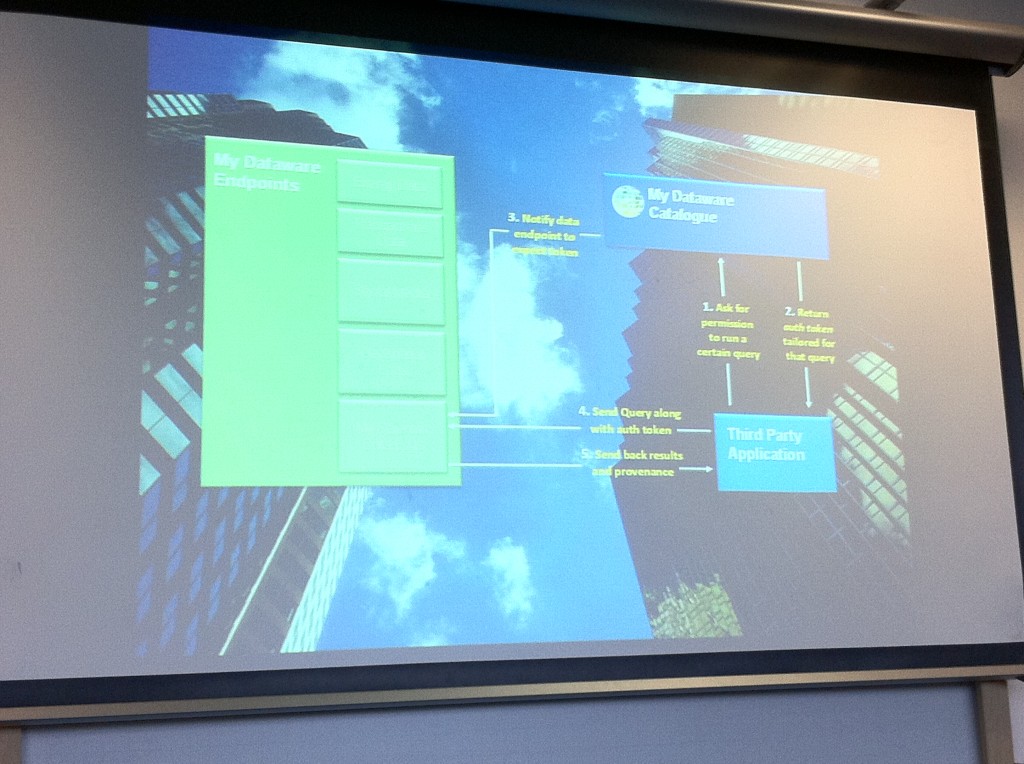This presentation from James Goulding …
Lots of ‘personal’ data being collected (e.g. by Tesco) – but not open. Who owns it? Very unclear – no precedents. Perhaps parallel with photography – if someone takes a photo of you, it is data about you that you don’t own.
Do ‘business’ own it? Lots of data in their data silos (Facebook, Tesco etc.)
Do we own the data? What if ‘I’ (as an individual) want ‘my’ data to be open
Data ‘tug-of-war’ – data can be duplicated, instantly transferrable
Marx: split between ‘those who own the means of production and those who work on them’ – but in data creation of this type, we’re not the worker? We’re not the customer?
We are the product!
Policy slow to catchup with practice.
Big data generates new data…
So question is not owns an individuals data, but: Who controls the means of analysis?
Vision of a ‘personal datasphere’:
- My (SPARQL?) endpoint – under my control
- Logically a single entity – a catalo on hosts under my control or on my cloud – maintains privacy
- User controlled – may decide to expose to trusted partners or for a price… (right to access data may not be right to process it!)
Dataware concept – it updates the ‘catalogue’ as other data sources (e.g. energy consumption data, social media etc.) update. Third party applications then could request permission to access data from the Dataware catalogue, the catalogue issues a token, which then allows the 3rd party app to access the data source (Facebook, Bank data, etc. etc.)
Illustrated here:
(click for larger picture)
James interested in how provenance might apply to the Dataware catalogue.
